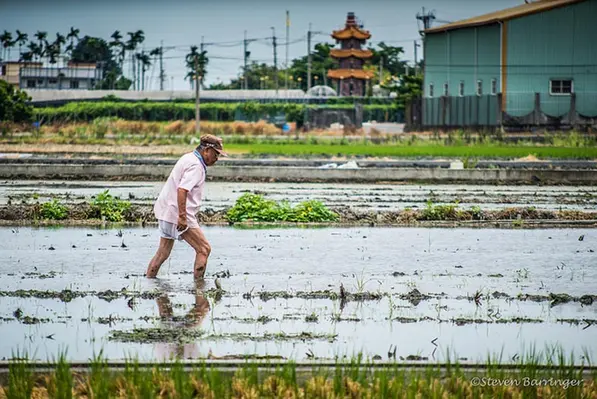Sixty farmers participated in evaluating new salinity-tolerant rice varieties in a farmer’s field in Meikhtilar District, Mandalay to identify new high-yielding varieties
Through a programme conducted by the International Rice Research Institute (IRRI), in collaboration with the Consortium for Unfavourable Rice Environments (CURE), these farmers also participated in selecting the best varieties for their fields while becoming aware of the sustainable adoption of improved varieties in stress-prone environments.
Myanmar has a predominantly agricultural economy based on rice production, with 32 per cent of the total rice area composed of unfavourable lowland areas. Salinity-affected rice-farming areas account for two per cent of these unfavourable areas—almost 110,000 ha—spread across different states and regions.
The collaboration between IRRI and CURE with Myanmar’s Department of Agricultural Research (DAR) to develop suitable rice varieties for these challenging areas has resulted in successfully developing and distributing to farmers seeds of three salinity-tolerant varieties—Sangnakhan Sin Thwe Latt, Pyi Myanmar Sein, and Shwe Asean.
All the nine tested varieties out-yielded the check varieties, except for one variety, 11T 265. Among the tested varieties, IR11T 159 had the highest yield (5.1 tonnes/ha).
A demonstration trial was held in a rice field in Meikhtilar District, Mandalay, to compare Pyi Myanmar Sein, a newly released salinity-tolerant variety, with four farmer-preferred varieties. Among the five tested varieties, Pyi Myanmar Sein performed best and produced the highest yield (4.3 tonnes/ha).
According to the IRRI team, a participatory varietal selection and seed multiplication each year will help to share information on new elite varieties with farmers, and their capacity will be developed.




